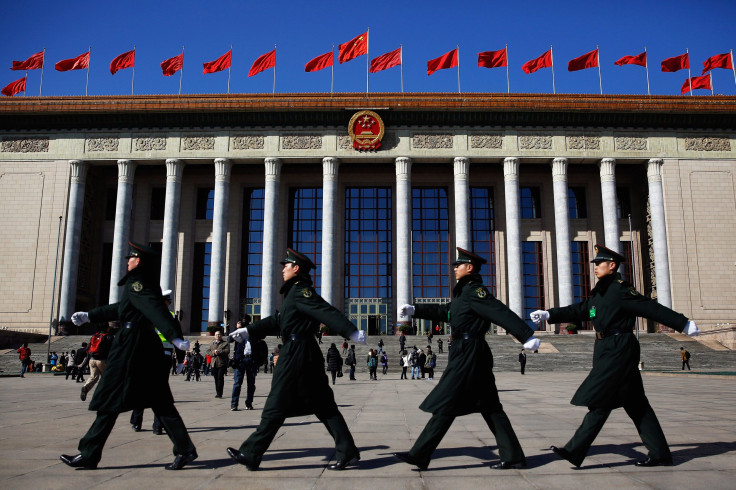China’s National People’s Congress To Convene In Beijing: Here’s What You Need To Know

Nearly 3,000 Chinese officials will descend on Beijing Saturday for the National People’s Congress (NPC) — a 10-day annual conclave that is the closest the ruling Communist Party gets to seeking a broader input on its decisions. The NPC session comes at the same time as the Chinese People’s Political Consultative Congress (CPPCC) — the country’s top political advisory body that kicked off its meeting Thursday.
The meetings, colloquially known in China as the “two sessions,” largely serve as well-choreographed displays of political theatre, with the rubber-stamp legislature ratifying decisions made behind firmly closed doors during the ruling party’s plenums usually held in October and November.
According to the Beijing-based Caixin magazine, the NPC has never turned down a bill put to it for a final vote by government agencies.
This year’s NPC, which would meet at the Great Hall of the People built in the 1950s, consists of 2,943 delegates, including government officials, company executives and military commanders hailing from 35 constituencies, provinces, municipalities and former colonies of Hong Kong, Macau and Taiwan. Although the Communist Party officially holds 72 percent of the seats, with the remainder occupied by eight authorized "non-Communist" parties and people with no affiliation, in practice, the membership is entirely controlled by the ruling party.
For instance, in 2009, Hu Xiaoyan, a 35-year-old who became the country’s first-ever migrant worker to become a member of the NPC, told the BBC that as a parliamentary member, she did not have “any real power.”
“I'm just a worker at this company, my boss's employee. It's not my job to solve problems,” Hu said.
However, despite being a largely ceremonial and anodyne gathering, the NPC does provide a clue to the direction of government policy, and a glimpse into the workings of opaque Chinese institutions that would otherwise be extremely difficult to fathom. The public proceedings also represent the one time each year that many of the people who run the world’s second-largest economy face the press.
This year’s meeting is likely to be dominated by discussions on China’s thirteenth Five-Year Plan, which is to be announced later this year. The proceedings would also provide crucial details on how the government plans to boost growth, which is expected at 6.5 percent to 7 percent this year — comparable to last year’s record low of 6.9 percent.
The highlight would be Premier Li Keqiang's “work report,” which will be delivered on the opening day of the NPC and will detail his economic growth forecast for 2016.
“The hope seems to be that the announcement of further initiatives to strengthen confidence in growth and reform will reduce exchange rate pressures and allow calm to be restored,” Charles Collyns, managing director and chief economist at the Institute of International Finance, told CNBC.
© Copyright IBTimes 2024. All rights reserved.












